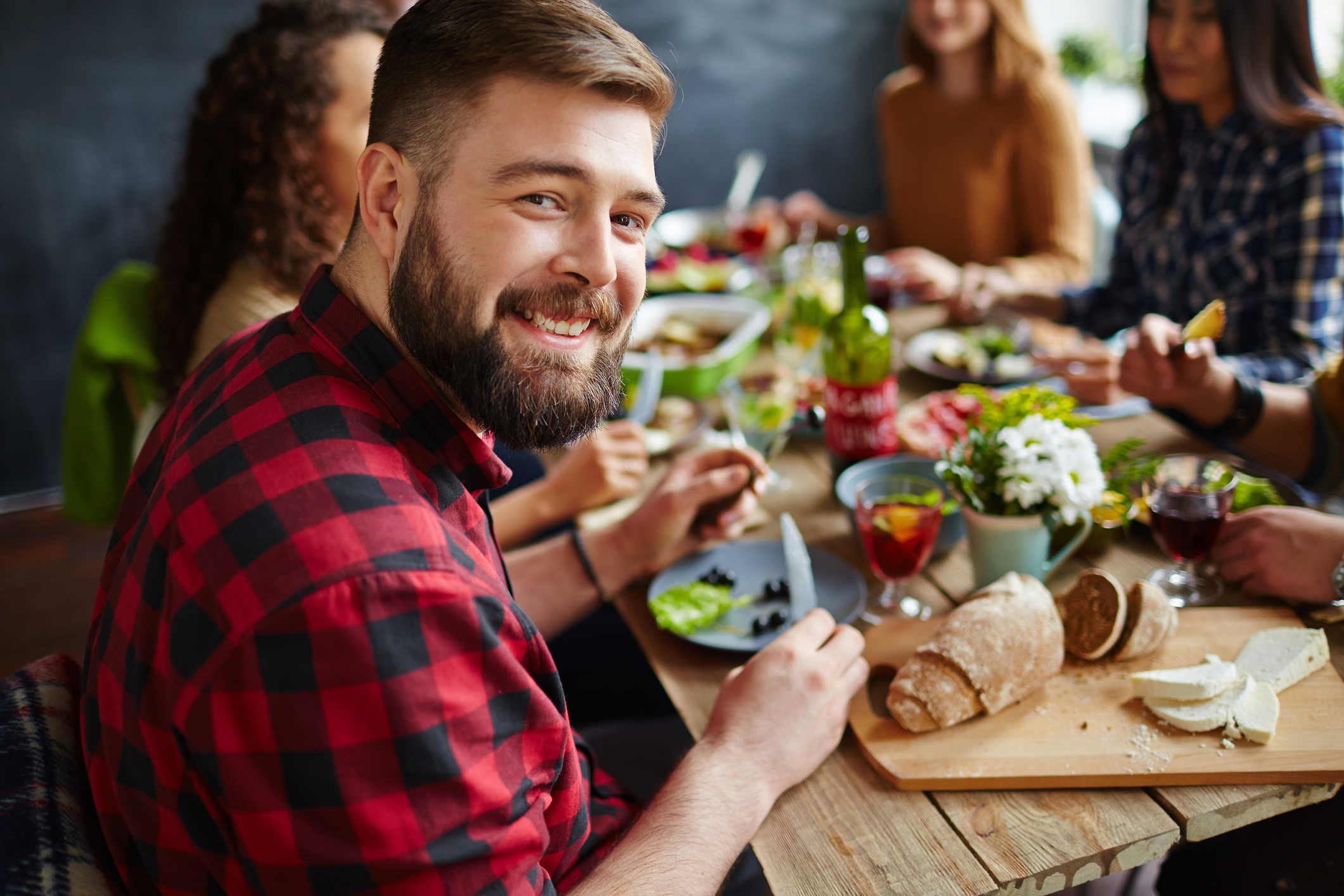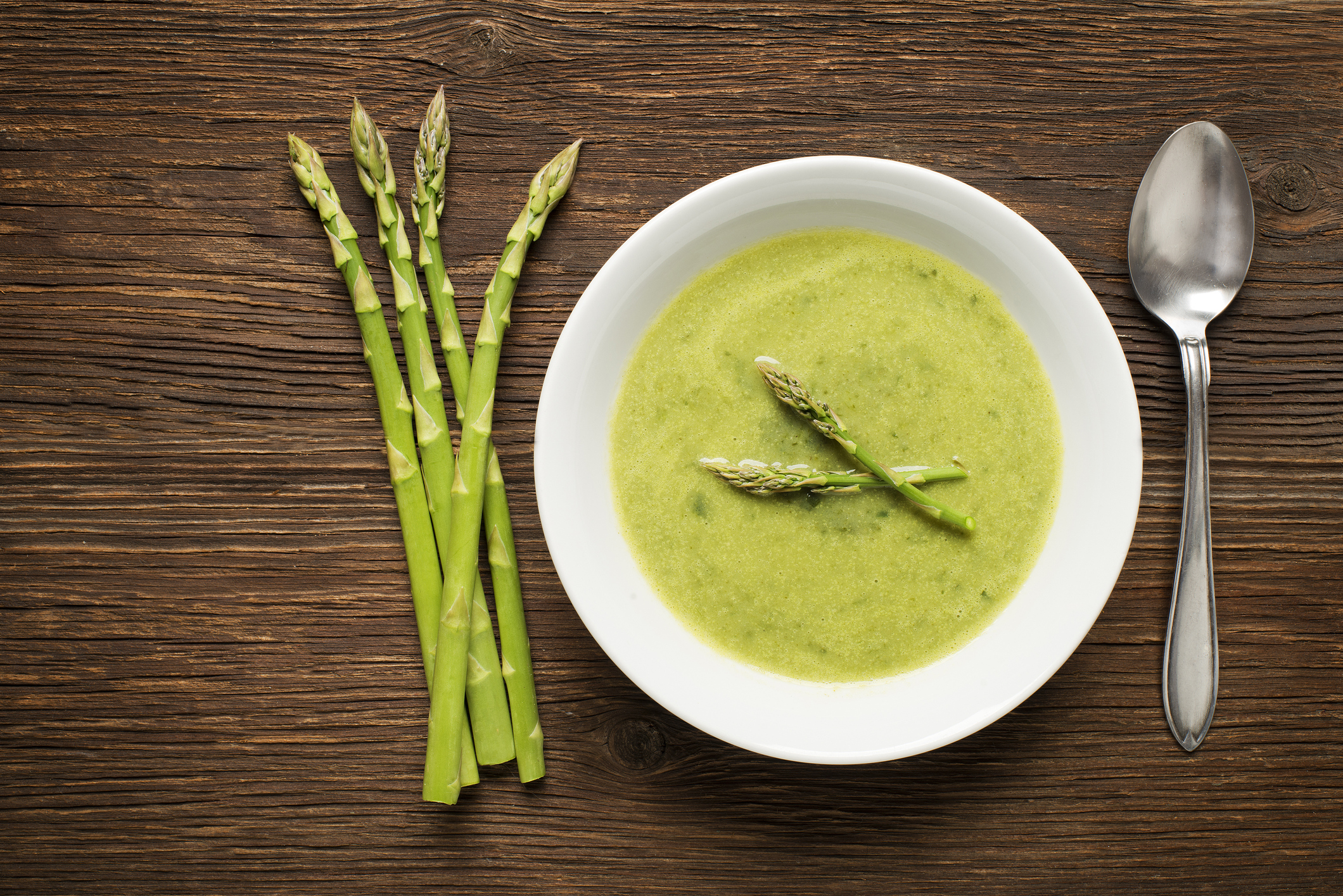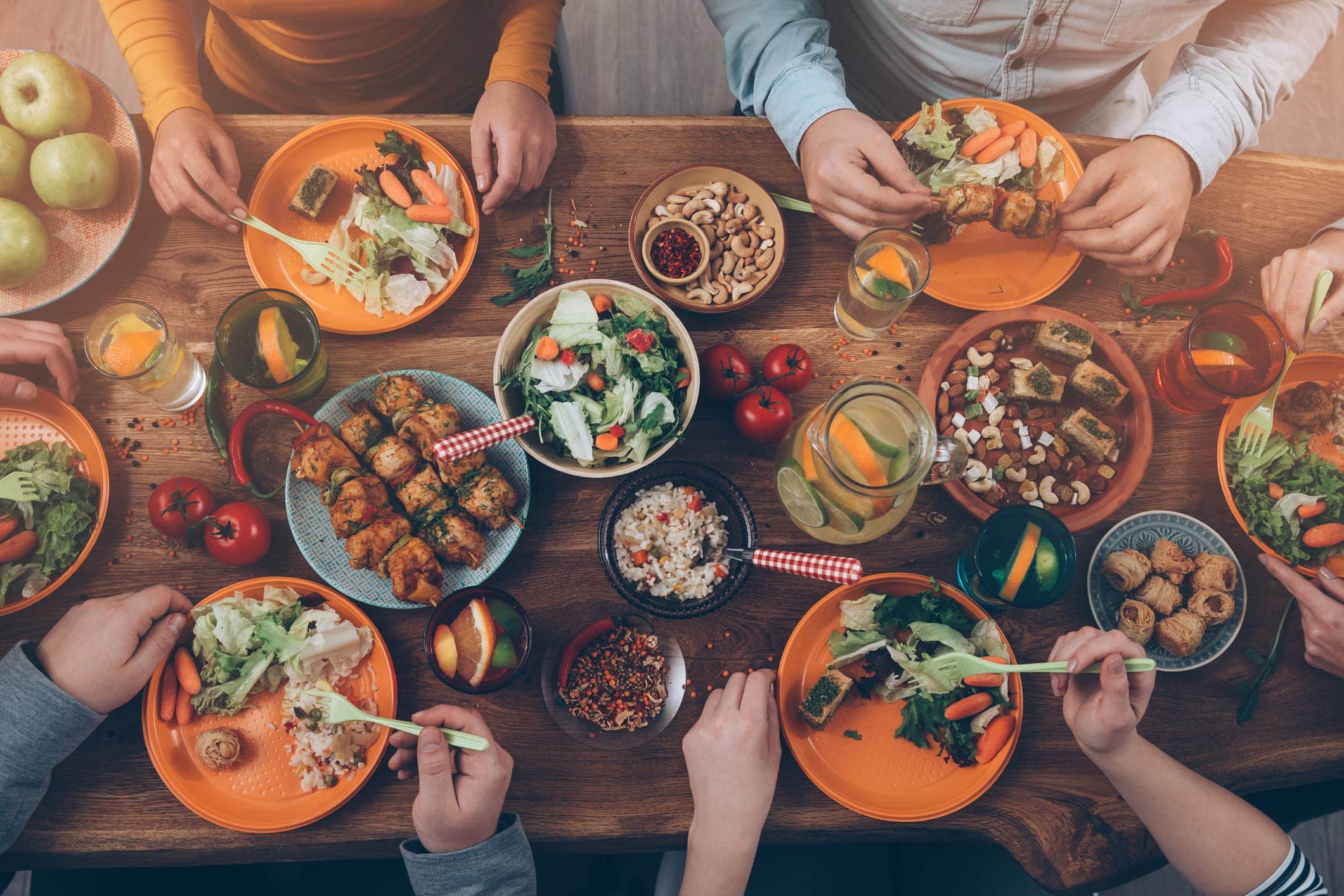How to manage portion sizes: Ever had to adjust your waistband because you’ve eaten too much – but somehow, you still find space for more once the cheese board appears or dessert’s plonked on the table?
Scientists may be yet to prove what many of us already know (that separate pudding stomachs are real things, obviously), but they have just shed some light on why sometimes, feeling full might make us want to eat even more.
Researchers from the University of Vermont found that learning to associate fullness with getting more food can trigger further feelings of hunger, even when we couldn’t possibly need to eat more.

Psychological conditioning, demonstrated through a study conducted on rats by Dr. Mark Bouton and Dr. Scott Schepers, involved the conditioning of 32 female rodents.
They were conditioned to anticipate a tasty treat if they pushed a lever while full, with no reward when pushed while hungry.
This process is akin to how children are taught that finishing everything on their plate will result in a reward, such as dessert.
Apparently, retraining our brains out of such habits can be tough (yep). But that doesn’t mean all hope is lost when it comes to keeping a healthy sense of portion control.
Here are some top tips that could help if you struggle to stop eating, even when you’re full…
1. Be mindful of why you’re eating
Lots of us eat for comfort, or to reward or soothe ourselves – and it can lead to compulsive cycles, but taking time to acknowledge what’s going on emotionally is a helpful step.
“Before you eat, notice if you are actually hungry or not. Are you eating for a reason other than hunger?
If so, it could mean you will never reach a point of satisfaction. Think about if this will truly help with whatever may be behind your want to eat,” says Lisa Beasley, anti-diet crusader and founder of My Body Positive.
2. Check in as you chew
Tend to go into a trance when you eat? If the concept of leaving anything on your plate is just downright alien to you – you’re not alone – but Lisa suggests trying to learn to “listen to your body while you’re eating”. “Take a moment to stop and notice the sensations.
If you reach that ‘Christmas day’ feeling of feeling stuffed, [ask yourself], ‘Is this actually a pleasant sensation?’
Remember, you are eating with the intention of feeling good when you’re finished.”
3. Snack happy
Forget what your mean Aunt Moody told you about the sins of eating between meals; snacks (you know – nuts, fruit, oat cakes, rather than chocolate digestives, sadly) are actually really good if you want to avoid getting too ravenous at mealtimes.
“Snack on an egg,” suggests Shona Wilkinson, nutritionist at Superfooduk.com.
“These make a great snack as the combination of protein and good fat help you feel fuller for longer.
Try boiling them in advance, and keeping them in the fridge as an easy snack to enjoy on the go. They will last up to a week.”

4. Stay well hydrated
“Sometimes thirst can actually be mistaken for hunger,” says Shona. “We feel like we’re craving something and interpret this as hunger when actually all we need is a glass of water!”
So make sure you’re drinking enough H20 – and that means sipping throughout the day, not just downing a pint when you feel a dehydration headache coming on.
“Water’s also needed in order for our cells to make use of the nutrients in the food that we eat; and lack of nutrient availability causes our body to crave more food,” Shona adds.
5. Bulk up
This might sound like a no-brainer – but make sure your meals are actually satisfying.
Remember, carbs are a necessity, not the enemy – so don’t be fooled into thinking there is a need to ditch potatoes, pasta, and rice.
Dense, high-fiber foods like root vegetables, beans, and pulses are a great way to bulk out meals.
6. Breakfast like a boss
Get breakfast wrong and you might be paying the price in out-of-whack energy levels and cravings all day long. “Oats are brilliant for keeping hunger pangs at bay.
They are nutritious and contain a good amount of fibre,” says Shona. “They have been shown to help balance blood sugar levels, thus keeping sugar cravings and hunger pains at bay.”

7. Enjoy a soup-er starter
“If you have soup before a meal, you will end up eating fewer calories during the meal.
The soup gives you the sensation of being fuller because it remains in the stomach for longer and makes you feel more satisfied,” says nutritionist Dr. Marilyn Glenville, author of Natural Alternatives to Sugar.
“In addition, the soup remaining in the stomach stops the cells in the stomach producing your hunger hormone ghrelin and turns off your appetite.”





